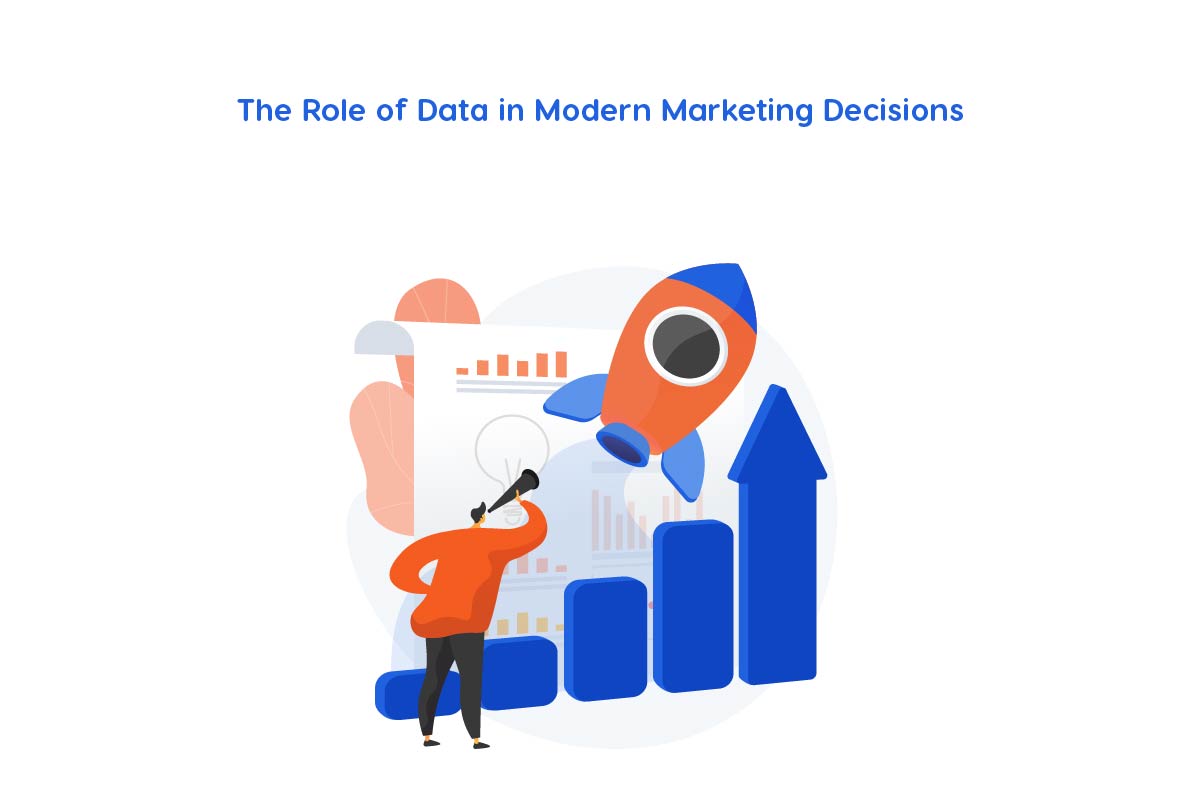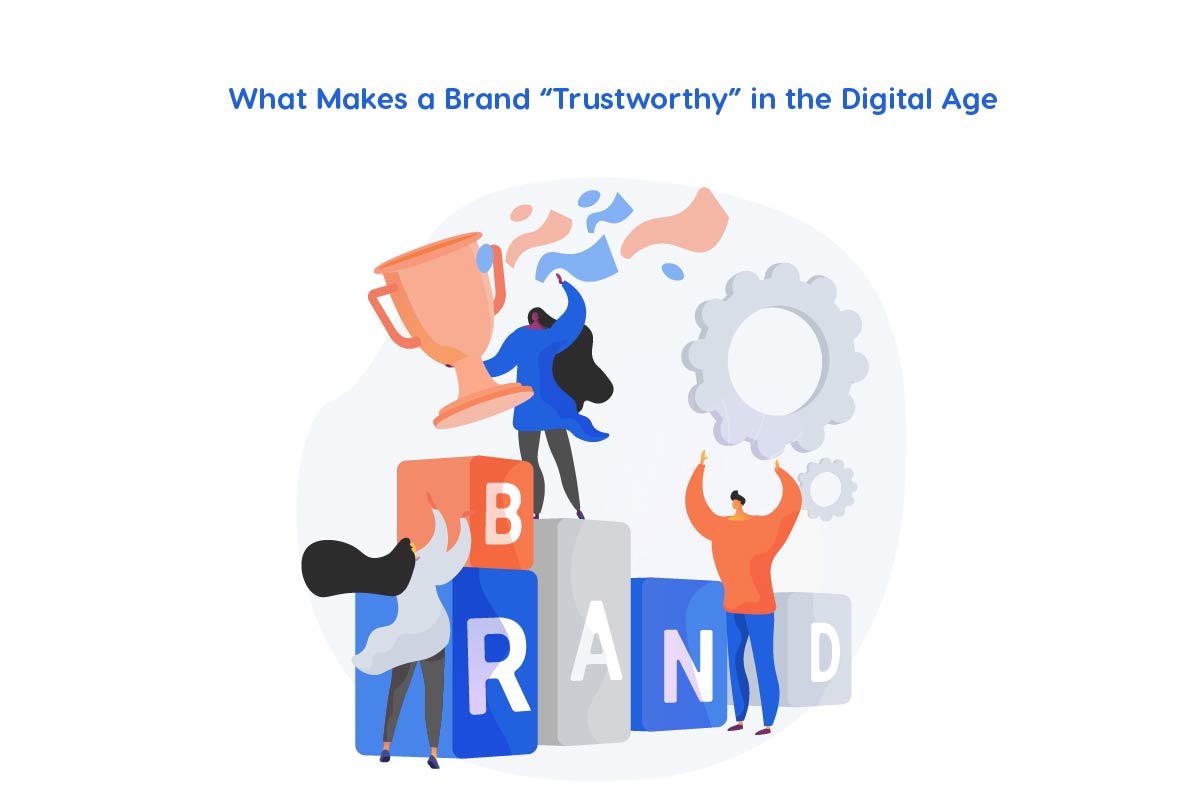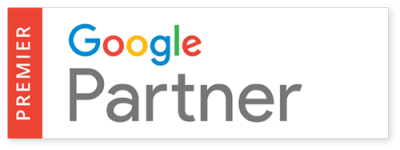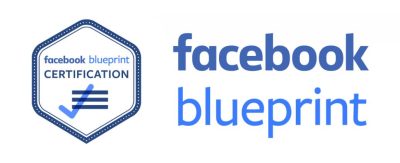In the digital marketing world, the most important tool is SEO (Search Engine Optimization) which will help increase the visibility of your site and rank higher on Google. SEO is not a single strategy, it consists of two major components On Page SEO and Off Page SEO. The two are used in combination to make your web site more attractive to both the search engines and the users. We will discuss the key differences, significance and methods of both.
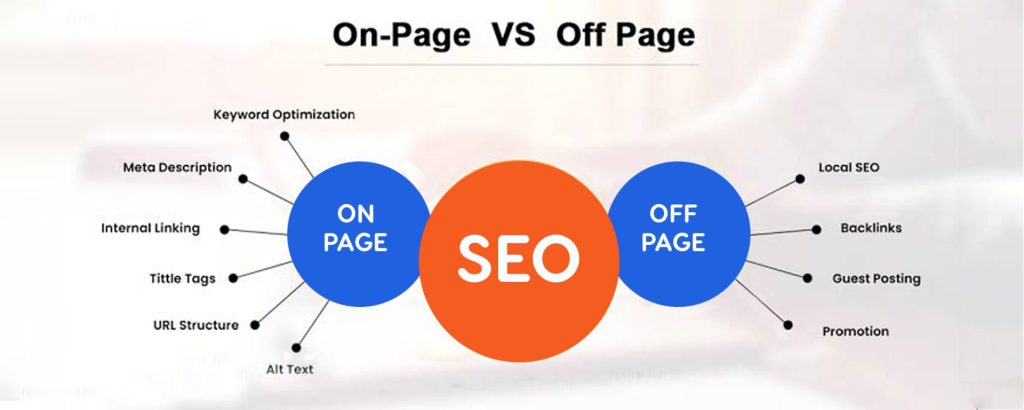
What is On-Page SEO?
On-Page SEO is the procedure of all things that you do on your own website to enhance it in ranking. It aims at optimizing the content, structure and HTML tags of the pages in your web-site so that the search engines can get to know more about your site.
Key Elements of On-Page SEO
Keyword Optimization
Let the search engines understand what your page is all about using keyword that is relevant in your titles, headings and body naturally.
Meta Titles and Descriptions
The clear icons which are written in meta titles and descriptions can enhance the hour of clicking through the search engine.
Quality Content
Producing original content, value and user centered content, answering the questions posed by the audience.
URL Structure
The length of the URLs should be short and descriptive (such as /seo-tips).
Internal Linking
Linking to the other pages in your site can enable easy navigation of the users and enhance the site authority as well.
Page Speed Optimization
A high-speed site will enhance user experience and ranking in the search results.
Concisely
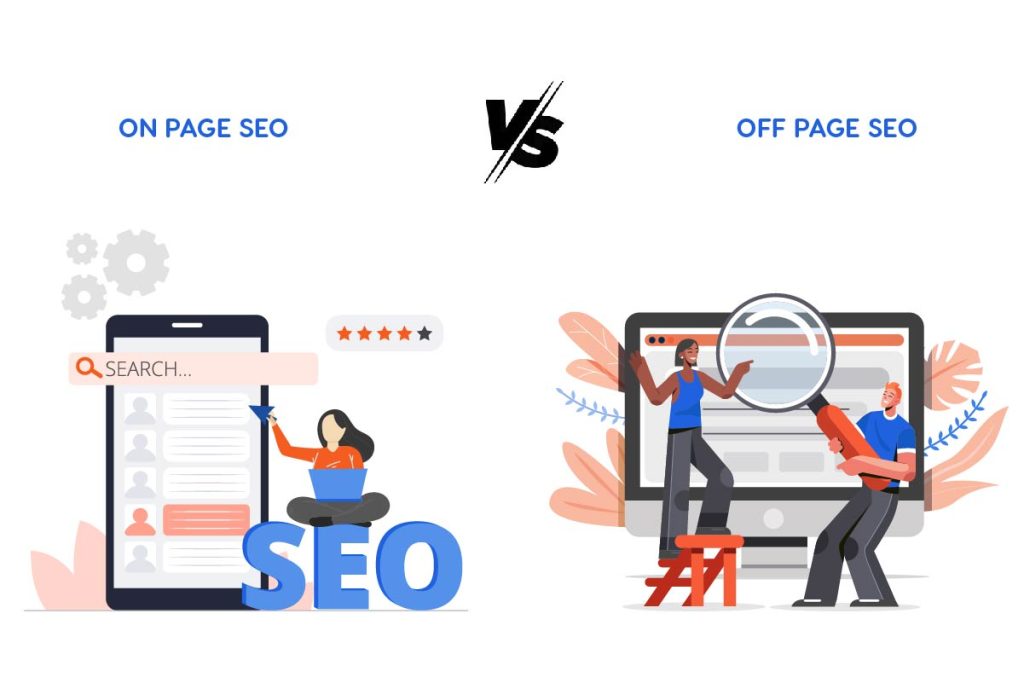
What is Off-Page SEO?
Off-Page SEO represents those activities that are performed outside your site to enhance its power and credibility. It is also about gaining trust and credibility in such a way that search engines can trust your site.
Key Elements of Off-Page SEO
Backlink Building
Obtaining links in other reputable websites is an indicator to the search engines that your content is worth having.
Social Media Engagement
Sharing your content in social media can assist in getting more visibility and traffic.
Influencer Marketing
Working with influencers or people in the industry to create brand awareness.
The Guest Blogging
Writing on other websites to get back links and exposure.
Online Reviews and Brand Mentions
Good mentions on forums, listings and review sites enhance credibility.
Concisely
The Main Differences Between On-Page and Off-Page SEO
| Aspect | On-Page SEO | Off-Page SEO |
|---|---|---|
| Focus | Optimizing website content and structure | Building authority outside the website |
| Control | You have full control | Depends on external factors |
| Techniques | Keywords, meta tags, internal links, site speed | Backlinks, social sharing, brand mentions |
| Goal | Improve relevance and user experience | Increase domain authority and reputation |
| Example | Optimizing a blog title with a keyword | Getting another website to link to that blog |
Why Both Are Important
Many website owners make the mistake of focusing only on one type of SEO. However, both are equally essential for success:
When both strategies are combined, they help your website rank higher, attract more visitors and build long term credibility
Final Thoughts
In simple terms, On-Page SEO is about what you can control, while Off-Page SEO is about how others perceive your website. Think of On-Page SEO as building a strong foundation and Off-Page SEO as spreading the word about it. To get the best results, you should maintain a balance between both — great content with solid optimization and a strong network of backlinks and mentions.

